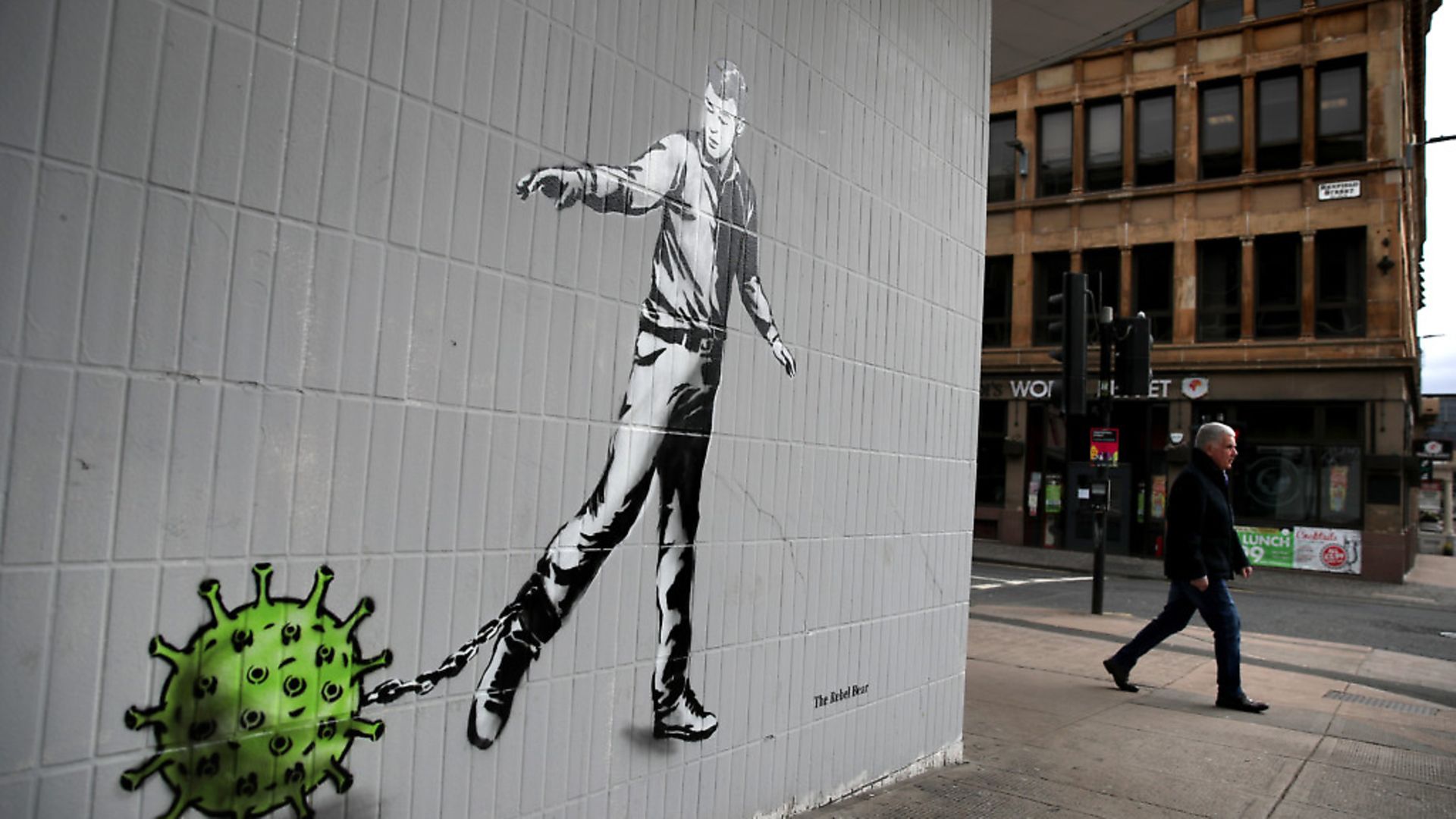
Overweight people and smokers – in other words the poor – are most hit by coronavirus, argues WILL SELF.
Is it just me, or was that really Lynda Snell shitting the bed at the end of last week’s Archers Omnibus? Yes, yes – I know I said I’d stopped listening to the long-running Radio 4 soap opera about rural folk a month ago, but guess what: I lied. I lied about not-listening-to-the-Archers the way people have been lying about social distancing: I’m an exception… that’s what we all think, isn’t it… and I have an exceptional need to go here/get that/see her… But in my own case, now is really not the time to cut back on soap operas – now is the time to crank up the volume and positively luxuriate in soap operas – especially if, like the Archers, the producers have made the decision to ignore the coronavirus crisis altogether.
Yes, unlike the poor television soaps, upon which work has ceased due to the aforementioned social-distancing measures, Ambridge and its denizens remain open for business. In my previous column on the subject I said the soap was another example of the English obsession with uchronia: a time, rather than a place, that never was – a Merrie England with happily organic social relations. Now its producers have decided to ignore the biggest impact in living memory on our social relations. Borsetshire has truly become the land that time is speedily forgetting. I suppose the rationale is that if the actors can work then the drama must go on – but anyway, the Archers have always been averse to wider social and political happenings that can’t be tidily resolved in 13-minute episodes, or directly related to mixed-arable farming.
That brings me back to Lynda Snell, and her incontinence. I’m not sure of all the details – recall, I’ve never listened consistently to the Archers, only dipped in and out – but it seems that Ambridge’s cultural vulture manqué got badly burnt in a fire at the Grey Gables Hotel and conference centre, and now lies, mummified in bandages, in Borsetshire General Hospital. I daresay that this storyline was evolved some time ago – but it is curiously timely, either allowing the scriptwriters to subtly allude to our own pressing collective anxieties, or at least giving this listener manqué that impression. Hence poor Lynda’s desperate appeal to the valetudinarian Peggy Archer that she should find her a nurse or a doctor – Peggy seemed wilfully obtuse about this for a while, until Lynda blurted out the ultimate English middle class solecism: ‘I need the bathroom!’ or words to that effect.
It was impossible not to hear in her anguish, the collective pain of a people returned to their corporeal reality by the collapse of mass consumerism and its attendant supply chains, and seeking therefore to mummify themselves… in toilet paper. Moreover, Snell’s incontinent yell came in the same week that Britons took to their windows, balconies, gardens and doorsteps to clap, shout, wassail – and otherwise express their admiration for all those who work for what we must, perforce, refer to now as ‘our’ National Health Service.
Certainly, this is the way it’s spoken of by the Tory ministers whose ideological asperity has resulted in the service being consistently underfunded for the past decade, leaving us less able to fight the pandemic than Lynda Snell is of getting to the bathroom unassisted. But I don’t really want to indulge in some left-right ding-donging on this issue: the fact is that when it comes to ‘our NHS’ we’re all true believers. Not, of course, in the reality of the service – but rather in its espoused values, which, in the age of neo-liberalism, are altruistic to the point of seeming Christ-like: free universal healthcare, on demand. In a world in which God, if not dead yet, is definitely on a ventilator, such an exaggerated claim cannot but be spiritualised.
It’s the universality that propels us into the mystic, I think – suggesting as it does a bedrock of egalitarianism, below which Britain cannot sink. Moreover, the ‘universal’ also floats freely around this proposition in our collective imagination, such that it can seem to refer not just to all comers, but also to all possible medical treatments as well. But we all know the truth: some are more equal than others even under optimal conditions – while the virus disproportionately affects those who are overweight and smokers: in other words – the poor.
Poor who are always with me nowadays – because while I may only tune into the Archers now and then, the silence of the surrounding city, combined with the position of my flat, with the Brixton Road a hundred yards one way, and the Clapham one a hundred yards the other, means the howls of the ambulances ferrying new coronavirus victims to Guy’s and St Thomas’ Hospitals are quite as piercing as Lynda Snell’s. It all puts me in mind of my late friend and mentor JG Ballard’s observation regarding our increasingly unreal times: ‘For the writer in particular it is less and less necessary for him to invent the fictional content of his novel. The fiction is already there. The writer’s task is to invent the reality.’
Warning: Illegal string offset 'link_id' in /mnt/storage/stage/www/wp-includes/bookmark.php on line 357
Notice: Trying to get property 'link_id' of non-object in /mnt/storage/stage/www/wp-includes/bookmark.php on line 37







